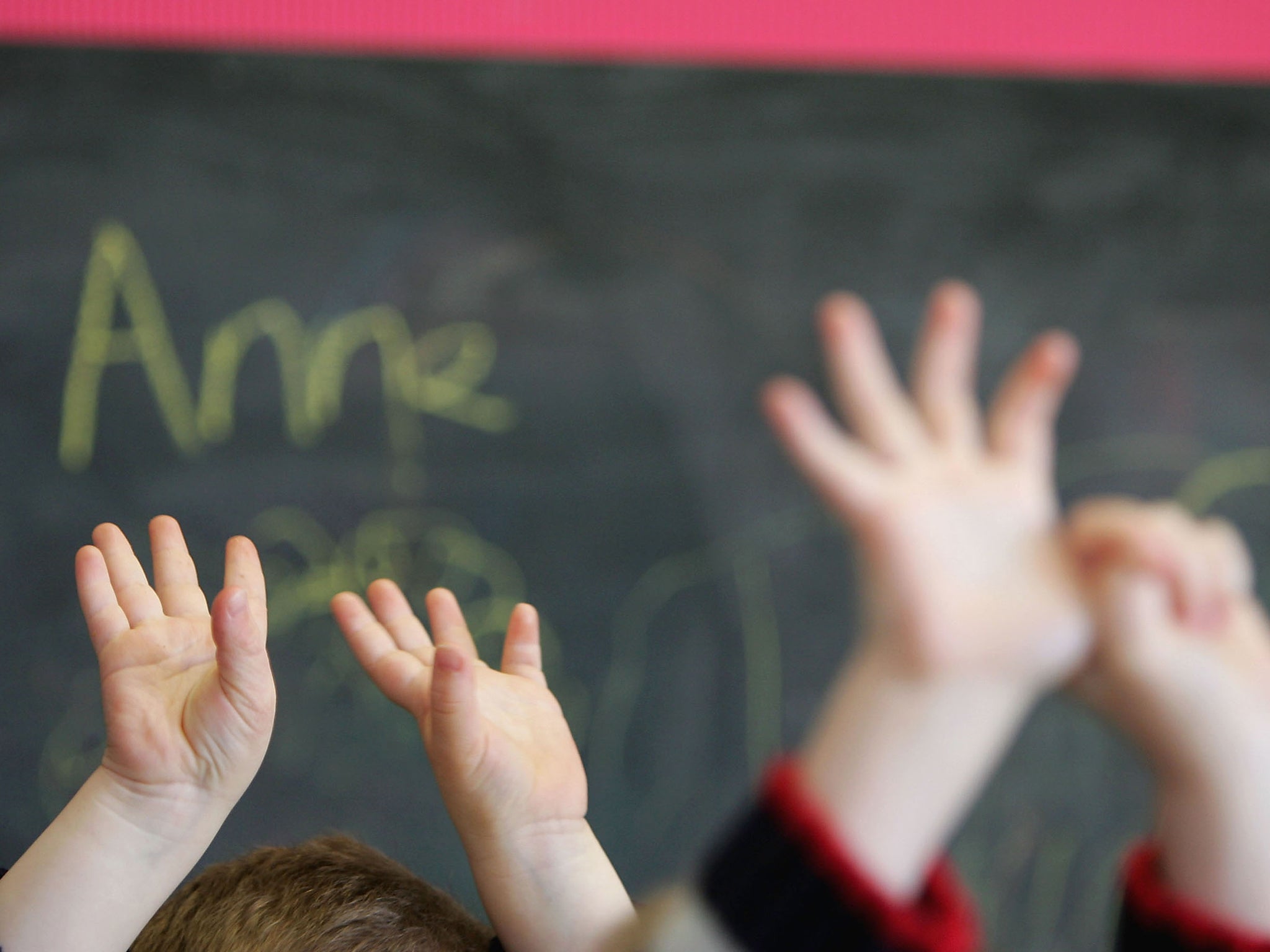Hundred of clever children from disadvantaged homes being failed by secondary schools, says new report
The children perform in the top 10 per cent of the country in national curriculum tests - but lag well behind by the time they take their GCSEs

Clever children from disadvantaged homes are being failed by their secondary schools after shining at primary level, a report warns.
Every year, hundreds of children who scored among the top 10 per cent of the country in tests for 11-year-olds end up lagging behind their peers by the time they take their GCSEs.
More than one in three bright boys and 24 per cent of bright girls from disadvantaged homes underachieve at GCSE, according to figures obtained by the Sutton Trust, the education charity campaigning for equal access to education for all pupils.
One in ten of the poor but clever children barely achieve C grades or do even worse when it comes to GCSE exams. In comparison, poor children from affluent homes who scored in the top 10 percent in tests for 11-year-olds are likely to go on to achieve eight straight A grade passes at GCSE.
The research, by Dr Rebecca Allen from Education Datalab, also finds poor clever children are less likely to study the subjects at GCSE that will gain them a place at one of the country’s top selective universities.
Almost a quarter will not study a foreign language at GCSE and only 53 per cent will take the triple science exam - including physics, chemistry and biology - compared with 69 per cent of their more advantaged peers.
“Today’s figures highlight the tragic waste of talent witnessed every year in our schools as so many bright children from disadvantaged backgrounds fail to fulfil their early academic potential,” said Dr Lee Elliot Major, education director of the Sutton Trust.
“It is a scandal that one third of boys from low income groups who achieve so highly the end of primary school are not among the highest school achievers at age 16.
“This attainment gap is holding many young people back from getting the grades they need to go to the best universities.”
The figures for clever disadvantaged pupils failing to achieve high grades at GCSE - 36 per cent of boys and 24 per cent of girls - compares with 16 per cent of boys and nine per cent of girls amongst their equally clever but more affluent peers.
In all, the survey looked at 7,000 pupils who were in the top 10 per cent nationally in end of primary school national curriculum tests - including 943 boys from poor homes and 614 girls.
The areas where bright disadvantaged pupils fared worst at GCSE were the North of England and the Midlands.
The Sutton Trust is piloting a programme - Sutton Scholars - with four leading universities, including Cambridge, which offers support for bright children from poor homes in early secondary schooling. Currently, it reaches about 500 pupils but there are plans to expand it. It also wants the Government to set up a “highly able” fund to examine the best ways to improve the attainment of clever but disadvantaged pupils.
Thr report recommends secondary schools should use their pupil premium funding (money given to schools for each free school meal pupil they take in) to help poor bright pupils sustain their academic success at age 11.
It adds that - since the demise of the gifted and talented programme initiated under Labour - many schools now lack special provision for the highly able pupils. The programme offered “master-classes” for the brightest children at university.
The report recommends that schools with a good record of catering for highly able pupils should pass on their know-how to less successful schools in their neighbourhoods.
A spokesman for the Department for Education said: "We are determined to ensure that every child regardless of background is given an education which allows them to reach their potential."
New reforms to exam league tables would reward schools for pushing every pupil rather than concentrating on pupils on the C/D grade borderlinem.
As a result of government reforms, the spokesman added, the gap between rich and poor pupils, performance had narrowed.
Join our commenting forum
Join thought-provoking conversations, follow other Independent readers and see their replies
Comments